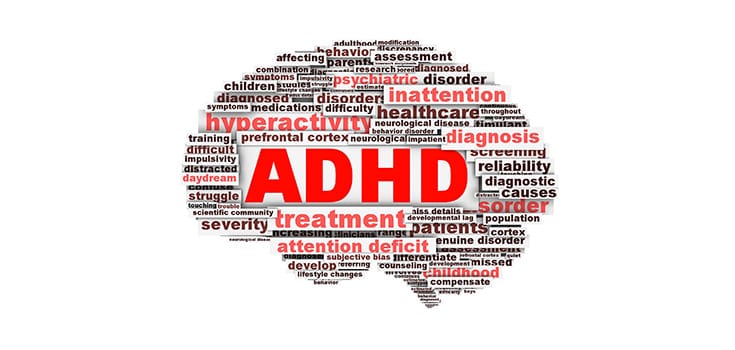Mother’s Mercury Levels Linked to Development of ADHD in Kids

Government agencies’ warnings to pregnant women about limiting fish consumption may be due for an update. A new study found that children of women with high mercury levels were 40 to 70 percent likely to exhibit symptoms of attention deficit hyperactivity disorder. On the other hand, symptoms of ADHD in kids were less likely to show when women ate a lot of fish during pregnancy. Because many of us assume fish and mercury go hand in hand, this appears to be a paradox.
“Fish consumption doesn’t necessarily correlate with mercury levels,” says study co-author Susan Korrick, an assistant professor of medicine at Brigham and Women’s Hospital of the Harvard School of Public Health. “You could eat a high amount of fish that are low in mercury.”
Nutrients for Cognitive Development
Researchers analyzed children of the coastal town New Bedford for the study. Women there eat more fish than most other American women, about four servings (six-ounces a serving) compared to two servings weekly.
The children of mothers who ate two or more servings weekly bore children with a 60 percent lower chance of experiencing ADHD symptoms later in life. Researchers attribute this to the omega-3 fatty acids in fatty fish, like salmon, tuna, and sardines. Fish are also good sources of vitamin D, B-12, and iodine, which, along with omega-3s, improve brain cognition.
But with fish mercury levels rampant, it’s very interesting for the researchers to come to such conclusions. A study completed in 2009 and released by the U.S. government found that every single freshwater fish tested was contaminated with mercury. They tested fish from 291 different streams across the country and didn’t find a single mercury-free fish. What’s more, fish mercury levels were often alarmingly high.
The bottom line? Be careful when consuming fish.
What Kind of Fish to Eat and Other Tips to Treat ADHD in Kids
Our choices matter across generations. Government agencies advise mothers-to-be to limit their consumption to two six-ounce servings weekly. The key, however, might be in what kinds of fish pregnant mothers should eat.
Korrick suggests sticking to three or four servings of fatty, low-mercury seafood like salmon, haddock, cod, and shrimp. Avoid swordfish, shark, tilefish, tuna, and king mackerel, which are known to have high mercury levels that can impede brain development.
In addition to this research, it’s important to note that ADHD in kids can be handled and reversed with simple dietary changes. Researchers J. Gordon Millichap and Michelle M. Yee analyzed 70 studies and found that a diet heavy in fiber, folate, and omega 3 fats could be the key to helping children deemed to suffer from ADHD. A diet rich in organic fruit and vegetables as well as whole grains should be consumed in order to attain these health-promoting nutrients, and ignite immediate positive change. What’s more, kids can hop off the ADHD medication, and not be a part of the 25% of kids on prescription drugs.
Additional Sources:

Ok! So now they're admitting that the mother's mercury levels are linked to ADHD. I can't wait until they finally say vaccines are linked to autism. Baby steps! Very teeny-tiny baby steps.